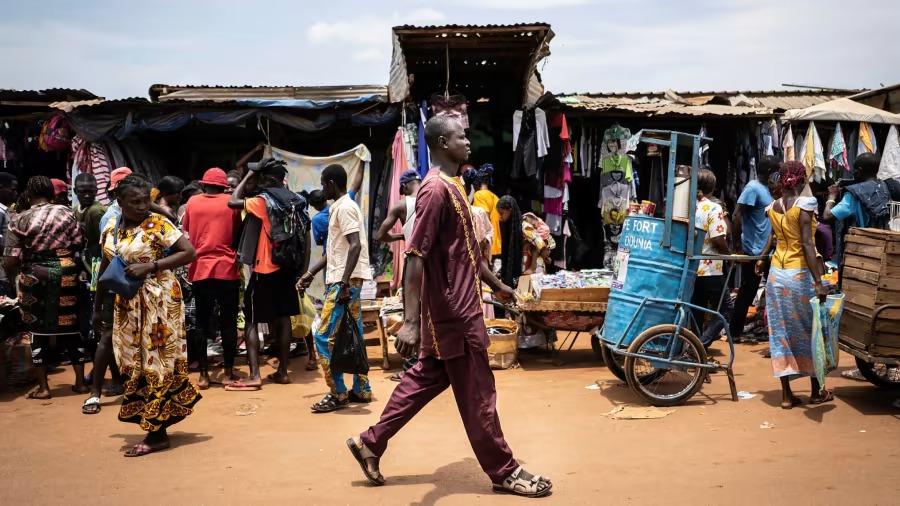Central African Republic’s adoption of bitcoin is mostly about geopolitics

Imagine a country that is landlocked and susceptible to coups, where armed groups hold large portions of the territory beyond the capital city and where the median income for the year is $493. What would you do to improve the lives of its peasant farmers, who make up the majority of its long-standing citizens? Enhance the education system, create rural roads and distribute fertiliser.
You are in line with the times if making bitcoin legal tender is your answer. Last month, Faustin-Archange Touadera, president of the Central African Republic, announced that El Salvador would be the second country in the world to adopt the seesawing cryptocurrency.
The 65-year old president holds a doctorate of mathematics and said that adopting bitcoin would improve the conditions’ for citizens. It also put CAR ‘on top of the list of the most bold and visionary countries in the world.
The opposition, fiat currency flat-earthers, who warned that bitcoin adoption could cause friction with international institutions as well as facilitate tax evasion and money laundering, is not to be ignored. The country’s tax-to-gross domestic product ratio is already below 10 percent. How low could it go, these naysayers?
In a country where only 85 percent of the population has access to electricity and the internet, it is easy to mock the move. It would take an average CAR citizen 60 years to purchase a single bitcoin at the current deflated rate, which is $30,000 less than the peak of November 2013.
El Salvador’s experience has not been a success. Few Salvadoreans seem to have used bitcoin, which is more an asset than a method of exchange. They use it to send money home or make transactions. Bloomberg reports that El Salvador’s government spent $103 million on 2,301 bitcoins. However, they have fallen by more than 40% since their first purchase. Unaccounted for reasons, a $1bn bond was delayed. The proceeds were to be used for a crypto-mining center powered by a volcano and to buy more bitcoin.
The new CAR course is more about geopolitics and economics. The CFA Franc was the only official currency of the ex-French colony of Ubangi-Shari. It is used in six countries of central Africa and eight of west Africa. (The US ‘gringo dollar is El Salvador’s second currency.
France guarantees the CFA franc, which is pegged to euro. This has provided some macroeconomic stability but it has also led to monetary independence. It is resentful among many in the region. Kemi Seba (a Senegalese activist) set fire to a 5,000 CFA Note (about $8.20), in a show of defiance that earned him a day at court with the man who gave him the lighter. You can do that using a cryptocoin.
Chief economist at the African Export-Import Bank Hippolyte Fofack sees the CFA a scheme to artificially raise the value of African currencies. This is a good thing for foreign companies looking to make profits, and local elites who love shopping in European capitals. However, it hinders industrialization by making exports less competitive.
Fofack welcomes CAR’s bitcoin foray to undermine the CFA Franc. This move was called by Chris Maurice, chief executive at cryptocurrency exchange Yellow Card. also called “a big middle finger towards the French economic system”.
France is being pushed away by CAR, but Russia is showing its support. Touadera owes its presidency to Russian mercenaries of the Wagner group, who in 2020 helped to repel a rebel army trying to overthrow him.
This has been costly. Russian operatives are accused of running a gold mine, and collecting taxes at the border. Russia denies that its “advisers” are involved in military or commercial activity. However, bitcoin could make it possible for them to transfer money into and out of the country, or bypass sanctions that were imposed following Russia’s invasion.
The idea could catch on regardless of CAR’s motivations. CAR’s motives may not be clear, but young people in west and central Africa have been attracted to the idea like moths to the flame of cryptocurrency. They have little trust in their government and have few opportunities to make money. The central bank of Nigeria banned crypto in Nigeria because it was so popular – and launched Africa’s first digital currency, eNaira, last Oct. It could be called bitcoin FOMO.
